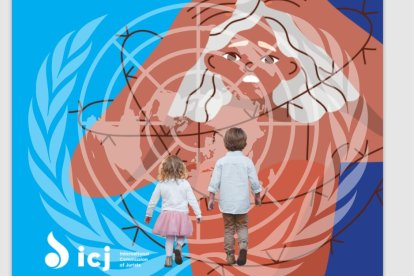UN report calls for decriminalization of sex between adults and minors
The document 'Principles of March 8' states that age cannot be a cause for discrimination and punishment in consensual sexual relations.

(UN/PIXABAY/VOZ MEDIA)
A report in which the Office of the UN High Commissioner for Human Rights (OHCHR) participated, is calling for the decriminalization of sex between adults and minors. The organization makes this appeal in a document entitled "Principles of March 8" in the proposed "a human rights-based approach to laws criminalising conduct in relation to sex, drug use, HIV, sexual and reproductive health, homelessness and poverty."
8 MARCH Principles FINAL MARCH 2023 by Israel Duro on Scribd
For the UN, "it can be consented in fact, if not in law"
Hidden within these publicly proclaimed objectives is the recommendation to decriminalize adult sex with minors, within Principle 16 of the document, dedicated to consensual sexual conduct. After a first paragraph stating that "Consensual sexual conduct, irrespective of the type of sexual activity, the sex/ gender, sexual orientation, gender identity or gender expression of the people involved or their marital status, may not be criminalized in any circumstances" the document proceeds to vindicate the normalization of pederasty.
Moreover, sexual conduct involving persons below the domestically prescribed minimum age of consent to sex may be consensual in fact, if not in law. In this context, the enforcement of criminal law should reflect the rights and capacity of persons under 18 years of age to make decisions about engaging in consensual sexual conduct and their right to be heard in matters concerning them. Pursuant to their evolving capacities and progressive autonomy, persons under 18 years of age should participate in decisions affecting them, with due regard to their age, maturity and best interests, and with specific attention to non-discrimination guarantees.
Criminal law "can reinforce inequalities"
In addition to OHCHR, UNAIDS and the International Commission of Jurists participated in the preparation of the report. The opening words of the foreword by retired South African judge Edwin Cameron make it clear where the report is going:
"Male-dominated systems"
For his part, the UN High Commissioner for Human Rights, Austrian, Volker Türk, said that the report "is an opportunity for all of us to think about power and male dominated systems. Frankly we need to ask these questions and make sure that they are part and parcel going forward as to what human rights means." After congratulating the authors of the text, Türk noted that "we need to use it also in a much more political context when it comes precisely to counter these power dynamics."
RECOMMENDATION





















